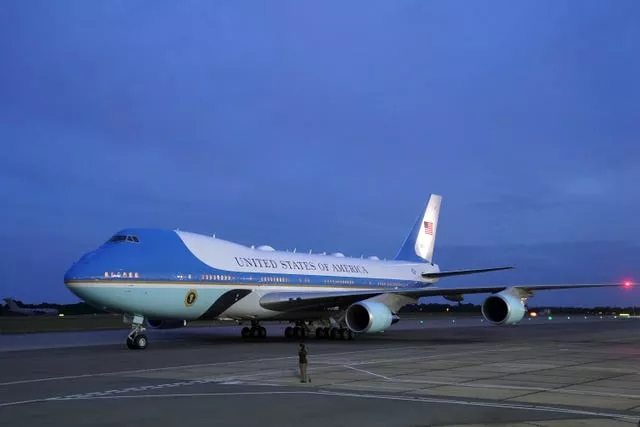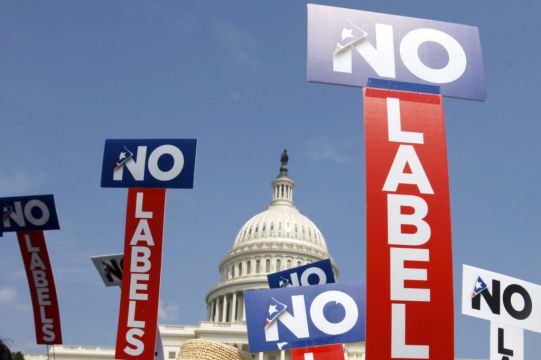The No Labels group said it will not field a presidential candidate in November after strategists for the bipartisan organisation were unable to attract a candidate willing to seize on the widespread dissatisfaction with US president Joe Biden and Donald Trump.
“No Labels has always said we would only offer our ballot line to a ticket if we could identify candidates with a credible path to winning the White House,” Nancy Jacobson, the group’s chief executive, said in a statement.
“No such candidates emerged, so the responsible course of action is for us to stand down.”
The decision caps months of discussions for No Labels, which has raised tens of millions of dollars from a donor list it has kept secret.
While its decision will disappoint people seeking a potentially viable third-party option, it will come as a relief to Democrats who long accused the group of effectively helping Mr Trump, the presumptive Republican nominee.
It also further cements a general election rematch this autumn between the Democratic incumbent and the former president.
Many voters do not have favourable views of Mr Biden and Mr Trump, a dynamic that No Labels had sought to address.
The Wall Street Journal first reported No Labels’ decision.

No Labels delegates voted overwhelmingly in March to launch the process of creating a bipartisan presidential and vice presidential ticket. But by then, No Labels had been rejected, publicly and privately, by many Democratic or Republican candidates.
Former UN ambassador Nikki Haley, who suspended her campaign for the GOP presidential nomination last month, had said she would not consider running on the No Labels ticket.
Senator Joe Manchin, a Democrat, ruled out running and former governor Larry Hogan, a Republican, decided to run for the US Senate.
Last month, former New Jersey governor. Chris Christie, a Republican candidate for president in 2024, said he would not run under the No Label banner, either.
The group had been weighing the nomination of a “unity ticket”, with a presidential candidate from one major party and a vice presidential candidate from the other, to appeal to voters unhappy with Mr Biden and Mr Trump.
Biden supporters had worried No Labels would pull votes away from the president in battleground states and had been critical of how the group would not disclose its donors or much about its decision-making.
No Labels never named all of its delegates and most of its deliberations took place in secret.







